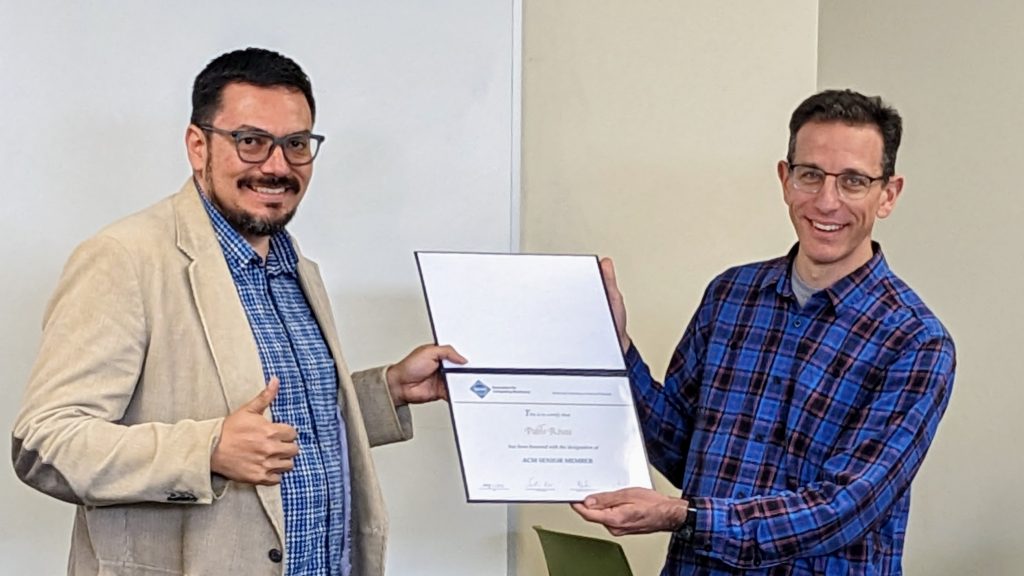I was honored to recently receive the ACM Senior Member designation from the Association for Computing Machinery (ACM). For my students who asked and anyone else interested, I would like to share with you what this honor is and why I received it.
First, let me tell you a little bit about the ACM. The ACM is the world’s largest educational and scientific computing society, with a mission to advance computing as a science and profession. The ACM Senior Member designation is a distinction awarded to members who have demonstrated significant accomplishments and impact in the computing field. To be considered for this honor, a candidate must have at least 10 years of professional experience in computing and have made significant contributions to the field through research, industry, or education. Being elevated to senior member status in ACM signifies that you are an established leader in the computing field, recognized by your peers for your expertise and contributions. It also comes with certain benefits, such as access to special resources and opportunities for professional development and networking.
Overall, being a senior member of ACM is a great honor and a recognition of your significant contributions to the computing field. 🫶
I was thrilled to learn that by recommendation of my mentor in the computer science department, Dr. Hamerly, the dean of the school of engineering and computer science, Dr. Baker, and of my peers, I am now an ACM Senior Member, and I believe that my contributions to the computing field over the past decade played a significant role in this recognition. Some of my most notable achievements include the following:
- Technical leadership: leading industry-university collaborative projects, securing funding for students’ research, directing numerous theses and independent studies, developing graduate courses on data mining and machine learning, updating and developing courses, and participating in the education committees at Marist College and Baylor University.
- Technical contributions: over 90 publications, research in machine learning and numerical optimization, contribution to SVM theory, recent research in efficient representation learning, adversarial learning, and ethical implications of biased and unfair models, and active involvement in developing AI ethics standards through work with IEEE Standards Association.
- Professional contributions: participation in professional events, including serving as Sponsorship & Budget chair of ACM NYC of Women in Computing and as a Program Committee Chair for NAACL 2022 LXNLP workshop, active membership in professional organizations, and full-time industry experience designing end-to-end systems to support manufacturing and supply management.
- Recognition: elevation to IEEE Senior Member, sought-after expertise and leadership in deep learning and ethics, involvement in developing AI ethics standards, and commitment to promoting diversity and inclusion in computing through work with ACM NYC of Women in Computing and participation in the AAAI Undergraduate Consortium.
My peers in the computing community have recognized these accomplishments and contributed to advancing the field. In addition to my technical contributions, I have been actively mentoring and teaching the next generation of computing professionals.
I am incredibly grateful to the ACM for this honor, and I hope it inspires some of my students to pursue academic excellence. I believe that we can all make a massive difference in the world through our work in computing, and I look forward to continuing to make meaningful contributions to the exciting and rapidly evolving field of machine learning and responsible AI.
Thank you for taking the time to read about my journey to becoming an ACM Senior Member. If you have any questions or would like to learn more about my work, please don’t hesitate to contact me.


